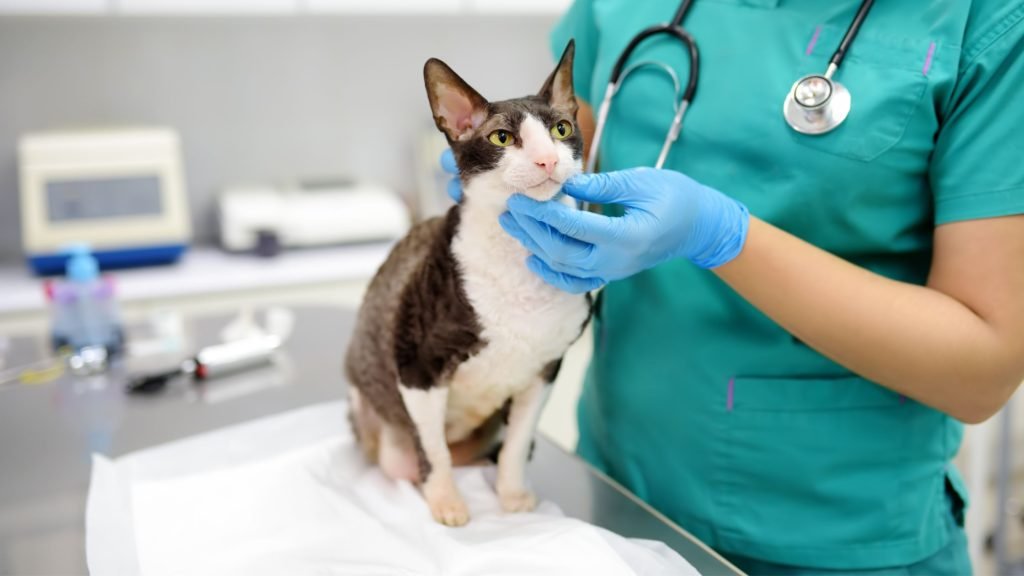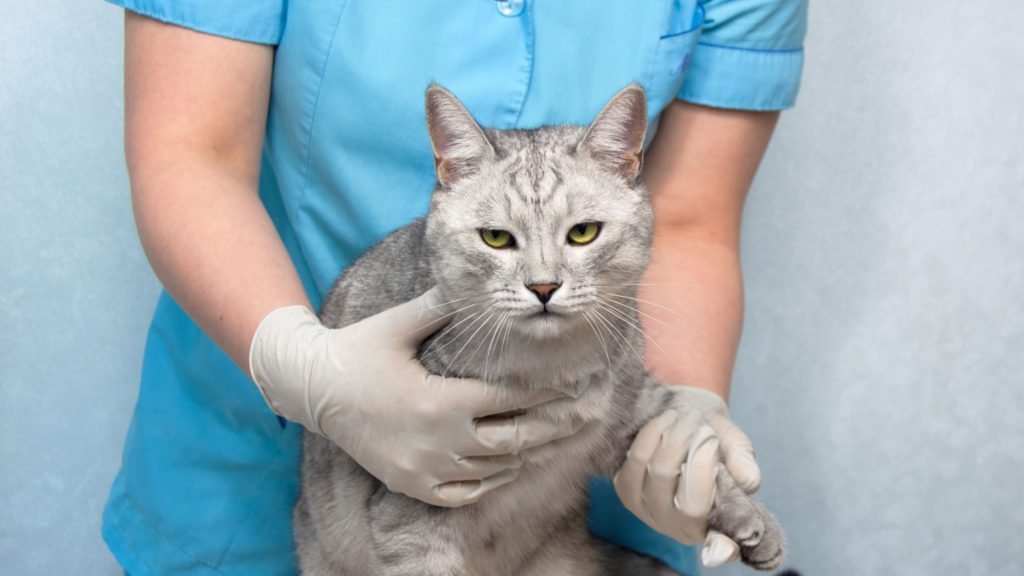Find the best allergy products for cats and expert advice on managing feline allergies. Help your cat lead a comfortable and healthy life.
Have you ever wondered if there’s a simple solution to help your cat?
Allergies can be an ongoing annoyance for our feline pals, leading to discomfort and impacting their overall well-being. But fear not! We’re about to unveil top-of-the-line cat allergy products that could make a difference in their lives. Please keep reading to learn how to help your cat find relief and end their sneezing, itching, and irritation.
Tackling cat allergies is essential for ensuring they live happy and healthy life. Like us, cats can experience allergies triggered by various factors. The first step to providing the best care for your pet is recognizing and treating these allergies. This article discusses allergy products, treatments, and prevention to help your cat live comfortably.
Understanding Cat Allergies
Before diving into cat allergy products, it’s essential to understand what causes these allergies and how to recognize the signs and symptoms. This knowledge will allow you to make informed decisions when choosing the best products for your cat’s needs.
Common Allergens
Cats can be allergic to a variety of substances, just like humans. Some of the most common allergens include:
- Pollen: Pollen from trees, grasses, and weeds can cause seasonal allergies in cats.
- Mold spores: Mold can grow in damp and humid environments, triggering allergic reactions in sensitive cats.
- Dust mites: These tiny creatures are found in household dust and can lead to cat allergies.
- Fleas: Flea saliva can cause an allergic reaction in some cats, leading to flea allergy dermatitis.
- Food: Cats can develop allergies to specific proteins or other ingredients in their food, such as chicken, beef, or fish.
Signs and Symptoms
It’s crucial to recognize the signs and symptoms of allergies in cats, as they can vary depending on the type of allergen and the cat’s reaction. Common symptoms of cat allergies include:
- Itchy skin: Cats may excessively scratch, bite, or lick their skin due to itchiness.
- Sneezing, coughing, or wheezing: Respiratory symptoms can indicate an allergic reaction in cats.
- Runny or watery eyes: Allergies can cause eye discharge and irritation.
- Ear infections: Cats with allergies may be more prone to developing ear infections.
- Vomiting or diarrhea: Food allergies can cause gastrointestinal symptoms in cats.
Diagnosing and Treating Allergies

If you think your cat might be dealing with allergies, it’s crucial to consult your veterinarian for an accurate diagnosis. Your vet will conduct a physical examination and suggest further tests, like blood or skin tests, to pinpoint the specific allergen causing your cat’s symptoms.
After diagnosing your cat’s allergies, your vet will assist you in creating a customized treatment plan that suits your cat’s requirements. This plan could include medications such as antihistamines or corticosteroids to manage symptoms. Additionally, your vet might advise your cat’s surroundings, like using hypoallergenic bedding or trying a different cat food, to help minimize allergen exposure.
You May Also Interest: Cat Breeds That Don’t Shed: The World of Low-Shedding Felines
Allergy Products for Cats: All Natural
Although no cat breed is entirely hypoallergenic, some breeds are less likely to cause allergic reactions in sensitive individuals. These breeds are considered the healthiest cat breeds regarding allergy issues.
Hypoallergenic Cat Breeds
Some of the most popular hypoallergenic cat breeds include:
- Siberian: These fluffy cats produce fewer allergens than many other breeds due to their lower levels of the protein Fel d 1, which is the primary cause of cat allergies.
- Balinese: Despite their long fur, Balinese cats produce less Fel d 1, making them a good choice for allergy sufferers.
- Bengal: These energetic and intelligent cats have short coats that require minimal grooming, leading to less shedding and dander in your home.
- Cornish Rex: Their unique curly coat helps minimize shedding and dander, reducing environmental allergens.
- Devon Rex: Like the Cornish Rex, Devon Rex cats have a low-shedding coat that helps reduce allergen levels.
Factors that Contribute to Lower Allergy Risks
Several factors can contribute to lower allergy risks in these healthiest cat breeds, including:
- Coat type: Cats with less shedding and less dander-producing coats can help reduce allergen levels.
- Grooming habits: Regular grooming can help minimize allergen levels in your home by removing loose fur and dander.
- Diet: A high-quality diet can help maintain your cat’s skin and coat health, reducing shedding and dander production.
All Natural Calming Products for Cats
For cats that suffer from stress or anxiety, which can exacerbate allergy symptoms, all-natural calming products can be a great addition to your cat’s care routine.
Benefits of Using Natural Products
Using all-natural calming products offers several advantages:
- Fewer side effects: Natural products generally have fewer side effects than prescription medications.
- Gentle on your cat’s system: Natural ingredients are often more accessible for your cat’s body to process.
- Non-habit forming: Natural calming products are typically not addictive, making them a safer long-term solution for managing stress and anxiety.
Top All-Natural Calming Products and Their Ingredients
Some popular all-natural calming products for cats include:
- Calming treats: Made with ingredients like L-Theanine, chamomile, and valerian root, these treats can help reduce anxiety and stress in cats.
- Herbal supplements: Supplements containing herbs like passionflower, skullcap, or lemon balm can help calm nervous cats.
- Pheromone diffusers: These products release calming pheromones that mimic the natural scent markers your cat uses to feel secure and relaxed in their environment.
How to Choose the Right Calming Product for Your Cat
When selecting a calming product for your cat, consider the following factors:
- Your cat’s specific needs: Consider the severity of your cat’s anxiety or stress, and choose a product that matches their needs.
- Ingredients: Look for high-quality, natural ingredients that are safe and effective ingredients for your cat.
- Ease of use: Choose a product that’s easy to administer, such as treats, diffusers, or sprays, depending on your cat’s preferences.
Incorporating all-natural calming products and hypoallergenic cat breeds into your pet care routine can create a more comfortable environment for you and your feline friend.
You May Also Interest: Bengal Cat Hypoallergenic: Embrace Feline Love Without Allergie
Allergy Products for Cats: Different Types of Skin Allergy Medications
Some common types of skin allergy medications for cats include:
- Steroids: Corticosteroids, such as prednisone, can help reduce inflammation and itching in cats with skin allergies.
- Antihistamines: These medications, like diphenhydramine (Benadryl), can help relieve itching and other allergy symptoms.
- Topical treatments: Medicated shampoos, creams, and sprays can help soothe and heal irritated skin.
- Immunosuppressive drugs: Medications such as cyclosporine may be used in some circumstances to suppress the immune system and decrease inflammation.
Allergy Products for Cats: How These Medications Work
Skin allergy medications work in various ways to alleviate your cat’s symptoms:
- Steroids: They help control the body’s inflammatory response, reducing redness, swelling, and itching.
- Antihistamines: These medications block the action of histamine, a chemical released during an allergic reaction, which helps reduce itching and other allergy symptoms.
- Topical treatments: These products can help soothe the skin, reduce inflammation, and promote healing.
- Immunosuppressive drugs: They suppress the immune system’s overactive response, which can help reduce inflammation and alleviate allergy symptoms.
Tips for Administering Skin Allergy Medicine to Your Cat
When giving your cat skin allergy medicine, consider the following tips:
- Follow your vet’s instructions: Always administer medication as your veterinarian prescribes.
- Monitor your cat’s response: Monitor your cat’s symptoms and report any changes or concerns to your veterinarian.
- Be patient: The medication may take some time to show its full effects. Follow your vet’s guidance on when to expect improvements.
You May Also Interest: The Ultimate Guide to Cage Training a Cat: Tips and Techniques
Preventative Measures for Cat Allergies
Preventative measures can help minimize your cat’s exposure to allergens and reduce the likelihood of allergy flare-ups.
Regular Grooming and Bathing
Frequent grooming and occasional bathing can help remove allergens from your cat’s coat, reducing exposure to potential irritants.
Maintaining a Clean Living Environment
Keeping your home clean and free of dust, pollen, and other allergens can help minimize your cat’s exposure to potential irritants. Regular vacuuming, dusting, and washing your cat’s bedding can help maintain a clean environment.
Allergy-Friendly Diets
Feeding your cat a diet specifically formulated for cats with allergies can help reduce the likelihood of food-related allergy symptoms. Consult your veterinarian for recommendations on appropriate diets for your cat.
When to Consult a veterinarian
It’s essential to recognize when your cat’s allergy symptoms require professional help and consult a veterinarian.
Signs That Your Cat Needs Professional Help
If your cat displays any of the following signs, it’s time to consult your veterinarian:
- Persistent itching, licking, or scratching
- Skin sores, scabs, or hair loss
- Worsening symptoms despite home care and prevention efforts
The Role of a Vet in Managing Cat Allergies
Your veterinarian can help diagnose your cat’s allergies, recommend appropriate treatments, and provide ongoing care and monitoring to ensure your cat remains comfortable and healthy.
By taking preventative measures, using appropriate medications when necessary, and consulting with your veterinarian, you can effectively manage your cat’s allergies and ensure a happy, healthy life for your feline friend.

